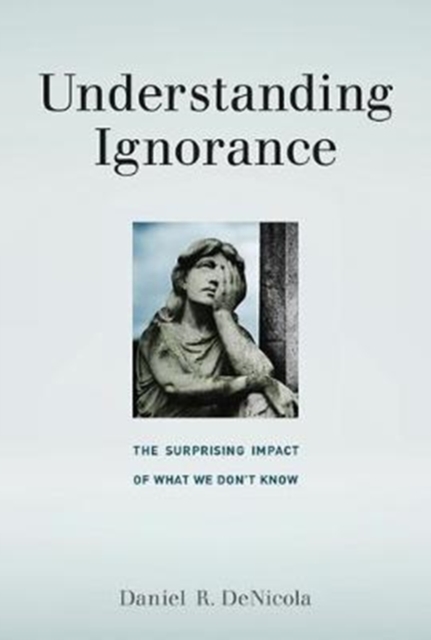CITESTE MAI MULT
Detalii
Descriere RO
An exploration of what we can know about what we don't know: why ignorance is more than simply a lack of knowledge.
Ignorance is trending. Politicians boast, “I'm not a scientist.” Angry citizens object to a proposed state motto because it is in Latin, and “This is America, not Mexico or Latin America.” Lack of experience, not expertise, becomes a credential. Fake news and repeated falsehoods are accepted and shape firm belief. Ignorance about American government and history is so alarming that the ideal of an informed citizenry now seems quaint. Conspiracy theories and false knowledge thrive. This may be the Information Age, but we do not seem to be well informed. In this book, philosopher Daniel DeNicola explores ignorance—its abundance, its endurance, and its consequences.
DeNicola aims to understand ignorance, which seems at first paradoxical. How can the unknown become known—and still be unknown? But he argues that ignorance is more than a lack or a void, and that it has dynamic and complex interactions with knowledge. Taking a broadly philosophical approach, DeNicola examines many forms of ignorance, using the metaphors of ignorance as place, boundary, limit, and horizon. He treats willful ignorance and describes the culture in which ignorance becomes an ideological stance. He discusses the ethics of ignorance, including the right not to know, considers the supposed virtues of ignorance, and concludes that there are situations in which ignorance is morally good.
Ignorance is neither pure nor simple. It is both an accusation and a defense (“You are ignorant!” “Yes, but I didn't know!”). Its practical effects range from the inconsequential to the momentous. It is a scourge, but, DeNicola argues daringly, it may also be a refuge, a value, even an accompaniment to virtue.
EdituraMIT Press Ltd
Dimensiuni162 x 236 x 26
Data Publicarii18/08/2017
Format
Numar pagini264
Aceasta este o carte in limba engleza. Descrierea cartii (tradusa din engleza cu Google Translate) este in limba romana din motive legale.
O explorare a ceea ce putem sti despre ceea ce nu stim: de ce ignoranta este mai mult decat o simpla lipsa de cunostinte. Ignoranta este tendinta. Politicienii se lauda: „Nu sunt om de stiinta”. Cetatenii furiosi se opun unui motto propus de stat, deoarece este in latina si „Aceasta este America, nu Mexic sau America Latina” Lipsa de experienta, nu de expertiza, devine o acreditare.

